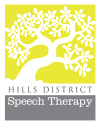1
Initial Consultation
All new clients to HDST will be required to attend an initial assessment consultation with their allocated therapist. This 45 minute session allows the therapist, client, and client's family get to know each other better and become familiar with the clinic space. It's also a great chance for HDST to provide families with critical information to help guide their decisions around assessment and intervention, and also allow the therapist to conduct some preliminary assessments before delving into more structured, comprehensive testing in the session.2
Assessment
A thorough initial assessment allows us to collect all the required information, so we can then carefully analyse and interpret the findings to formulate an appropriate intervention plan.3
Service Agreement
We believe in transparency, so we will discuss and create a service agreement with all our NDIS registered clients. This involved developing specific goals derived from your NDIS plan and selecting an appropriate package of services for the duration of the agreement.4
Reporting
All initial and review assessments come with a comprehensive and individualised report which include findings, explanations, interpretations, insights, valuable recommendations and an outline of intervention plans. These reports are then provided to all members of the team (e.g. Paediatrician, OT, teacher) to establish a strong starting point to the intervention process.5
Planning Intervention - Setting Goals
Goal selection is essential to progress. Carefully selected goals and targets, based on evidence-based practice can mean lots of time and money saved. We want your child to make the most gains in the shortest amount of time! Your intervention will be under the watchful eye of the team, supervisors and we set out to take a holistic approach in order to optimise progress.6
Regular Sessions
For most therapy to be effective and gains seen, frequent and intensive practice is required. This is why we need you to commit to regular sessions in which we guide you with what needs to be done in home practice sessions. Practice sessions at home are crucial to progress.7
Collaboration
We value the importance of team collaboration and therefore emphasis is placed on liaising with carers, school staff and other professionals involved in the care of your child. All of our therapists also work directly from schools and preschools within the area and therefore have an understanding of the need for there to be a team effort in supporting any child with communication/learning difficulties.8
Reviews
We will suggest reviews every 6-12 months, whereby we can formally evaluate progress. Progress monitoring is however occurring at each session – our decisions for the next session are based upon data collected and goals obtained in the last session as well as your feedback and observations.9
Maintenance
We want you to maintain the gains you make in therapy! We will recommend a maintenance plan once the majority of goals are reached in order to ensure the skills continue to generalise into everyday life.